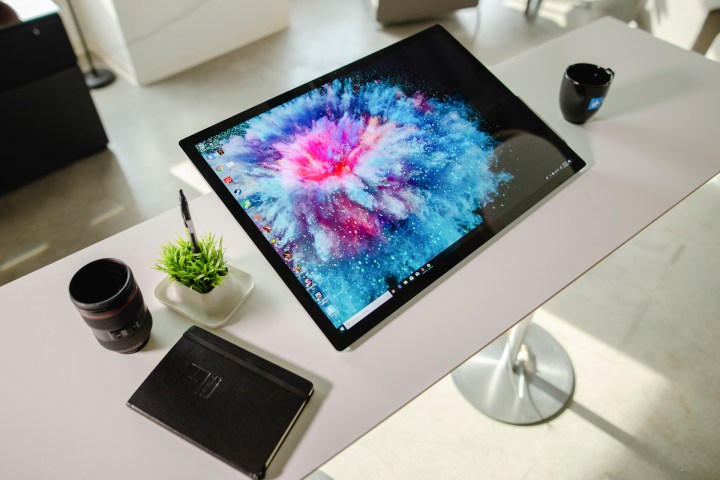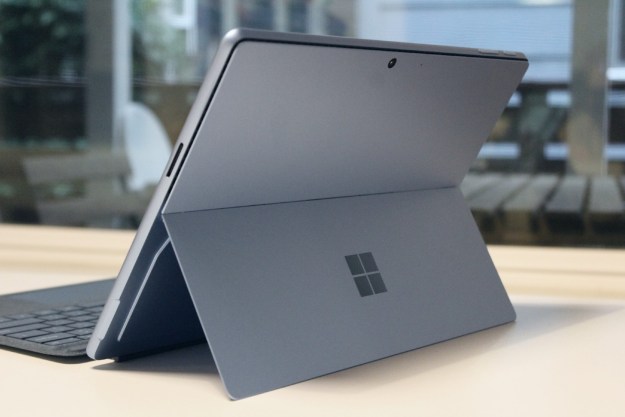
Despite a strong second quarter of the 2019 fiscal year, Microsoft’s earnings were weighed down by a slowing PC market. Microsoft reported a 5 percent decline year-over-year in revenue of its Windows license to manufacturing partners, suggesting that PC makers aren’t selling as many PCs as anticipated. This slowdown, the company explained, also had an effect on the consumer Office business, which grew just 1 percent year-over-year.
“In Windows, the overall PC market was smaller than we expected, primarily due to the timing of chip supplies to our OEM partners, which constrained an otherwise healthy PC ecosystem,” Microsoft Chief Financial Officer Amy Hood said in the earnings call, likely referencing some of the widely reported supply constraints that Intel has been facing as it migrates to a sub-12nm manufacturing process. In fact, Hood blamed poor Windows original equipment manufacturer (OEM) licensing revenues on the timing of chip supplies that were delivered to OEM partners, and this, in turn, affected Microsoft’s Pro and non-Pro Windows revenue growth. Broken down, Windows Pro licensing revenue declined by 2 percent, while non-Pro revenue declined by 11 percent.
Even with a slowing PC market, Microsoft’s Surface business showed strong growth. “Surface had its biggest quarter ever this holiday,” Microsoft CEO Satya Nadella boasted on the call, noting that Surface revenue increased by 39 percent. Microsoft launched the Surface line with the debut of the Surface Pro and Surface RT in 2012, and today the Surface family also includes the Surface Book, Surface Laptop, Surface Studio, Surface Go, Surface Hub, and accessories like the Surface Headphone, Surface Pen, Surface Type Cover, Surface Mouse, and Surface Dial.
The strength of the Surface business has led Microsoft to adjust its revenue guidance for the third quarter. Hood noted that the company is experiencing a shift in revenue from Windows licenses to Surface and gaming, primarily due to the continued chip supply constraints. Gaming revenue increased by 8 percent, and in particular, Xbox software and services revenue increased by 31 percent. Hood credited “strength from a third-party title” for the growth in gaming, but she did not give specifics.
Earlier this year at CES 2019, chipmakers AMD and Intel both announced new chipsets that will lead to powerful and more efficient PCs, and Nvidia also announced new mobile-centric graphics cards that will help accelerate PC gaming. Nvidia‘s and AMD’s new GPUs will likely help to accelerate Microsoft’s investments in gaming, but it doesn’t sound like Hood was very optimistic about the overall state of the consumer PC market. Another potential cause for the slowing PC market, and one that Microsoft didn’t touch on, is that Microsoft’s Surface business is becoming a strong competitor to PCs made by traditional partners, like Acer, Asus, Dell, HP, Lenovo, and Samsung. If consumers are choosing Surface over PCs from OEM partners, then Surface could also be cannibalizing traditional PC sales, and this could be why Microsoft is experiencing a decline in Windows OEM licensing revenue.
Editors' Recommendations
- Surface Pro 10: all the major changes rumored for the new model
- This secret Microsoft Edge feature changed the way I work
- Microsoft just discovered the next big evolution in displays
- Copilot: how to use Microsoft’s own version of ChatGPT
- Microsoft’s next event could reveal the Surface Pro we’ve been waiting for


